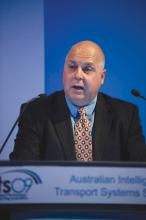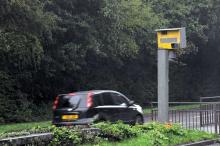A new review by the commissioned by the Australian Federal Government and chaired by University of Melbourne economics professor Ian Harper makes a strong case for what it calls ‘cost-reflective road pricing’.
The 313 page review of competition policy in Australia says the advent of new technology presents opportunities to improve the efficiency of road transport in ways that were unattainable two decades ago. Linking road user charges to road construction, maintenance and safety should make road investm
A new review by the commissioned by the Australian Federal Government and chaired by University of Melbourne economics professor Ian Harper makes a strong case for what it calls ‘cost-reflective road pricing’.
The 313 page review of competition policy in Australia says the advent of new technology presents opportunities to improve the efficiency of road transport in ways that were unattainable two decades ago. Linking road user charges to road construction, maintenance and safety should make road investment decisions more responsive to the needs and preferences of road users. As in other sectors, where pricing is introduced it should be overseen by an independent regulator.
There is currently indirect charging for road use through fuel excise and vehicle registration charges. These could be replaced with direct, cost-reflective prices in a revenue-neutral way.
The review recommends that governments should introduce cost-reflective road pricing with the aid of new technologies, with pricing subject to independent oversight and linked to road construction, maintenance and safety.
To avoid imposing higher overall charges on road users, there should be a cross-jurisdictional approach to road pricing. Indirect charges and taxes on road users should be reduced as direct pricing is introduced. Revenue implications for different levels of government should be managed by adjusting Commonwealth grants to the States and Territories.
Harper told News Corp Australia “we now have the capacity to charge people for their use of the road system according to time of day, size of the vehicle and whereabouts they happen to be.”
He said “the road system is the only example of an infrastructure asset, where the government owns the great bulk of the asset, funded through the tax system and given away for nothing.”
Australian Automobile Association executive director Andrew McKellar said “a road-user charging model … should be on the agenda over the medium-term.” But you’ve got to ensure that motorists don’t end up paying more.”
The 313 page review of competition policy in Australia says the advent of new technology presents opportunities to improve the efficiency of road transport in ways that were unattainable two decades ago. Linking road user charges to road construction, maintenance and safety should make road investment decisions more responsive to the needs and preferences of road users. As in other sectors, where pricing is introduced it should be overseen by an independent regulator.
There is currently indirect charging for road use through fuel excise and vehicle registration charges. These could be replaced with direct, cost-reflective prices in a revenue-neutral way.
The review recommends that governments should introduce cost-reflective road pricing with the aid of new technologies, with pricing subject to independent oversight and linked to road construction, maintenance and safety.
To avoid imposing higher overall charges on road users, there should be a cross-jurisdictional approach to road pricing. Indirect charges and taxes on road users should be reduced as direct pricing is introduced. Revenue implications for different levels of government should be managed by adjusting Commonwealth grants to the States and Territories.
Harper told News Corp Australia “we now have the capacity to charge people for their use of the road system according to time of day, size of the vehicle and whereabouts they happen to be.”
He said “the road system is the only example of an infrastructure asset, where the government owns the great bulk of the asset, funded through the tax system and given away for nothing.”
Australian Automobile Association executive director Andrew McKellar said “a road-user charging model … should be on the agenda over the medium-term.” But you’ve got to ensure that motorists don’t end up paying more.”








